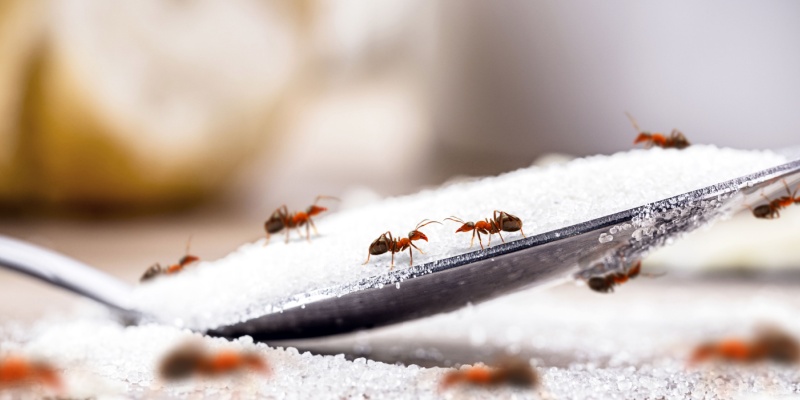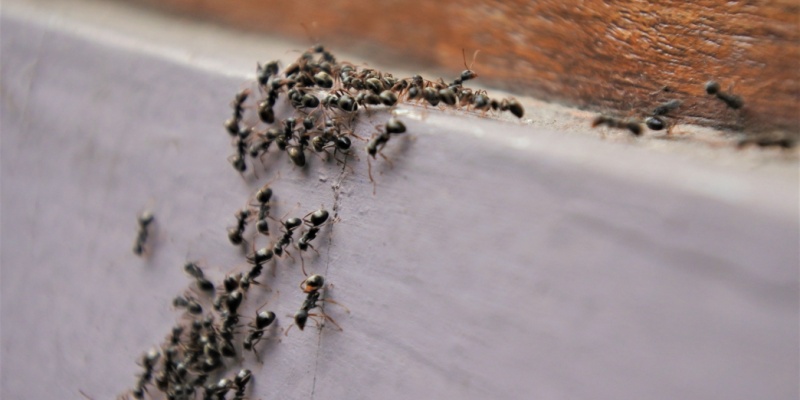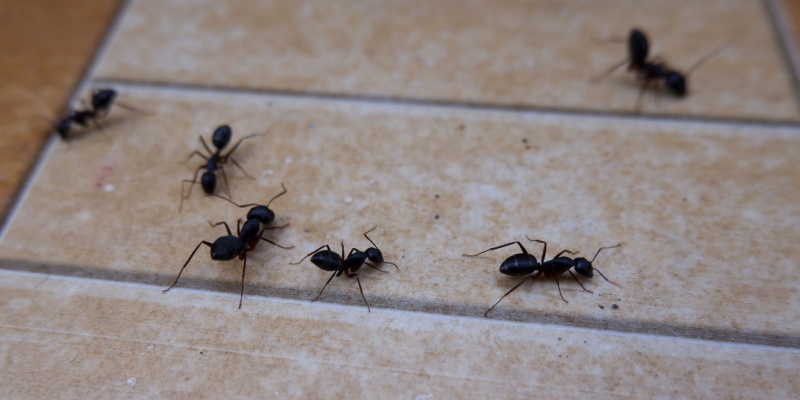Finding ants in your kitchen can be a frustrating experience. These tiny invaders are drawn to your home for several reasons, primarily in search of food and water. Kitchens offer ample opportunities for ants to find sustenance, making them one of the most common rooms in a home to experience ant infestations. Understanding why ants are invading your kitchen is the first step toward addressing the issue and keeping your space ant-free. Here are the primary reasons ants make their way into your kitchen:
Food Sources
Ants are opportunistic feeders that can eat almost anything. Crumbs, spills, and accessible food containers can attract ants into your kitchen. Once an ant finds a food source, it leaves a pheromone trail back to its colony, leading other ants directly to the food.
Moisture and Water
Like all living creatures, ants need water to survive. Dampness, leaking pipes, and standing water in sinks provide perfect drinking spots for ants. Kitchens, often with higher moisture levels due to cooking and cleaning, can attract ants seeking hydration.
Entry Points
Ants can enter homes through the smallest cracks and crevices, searching for food and water. Common entry points include gaps around windows, doors, and utility lines. Once inside, they explore and can easily discover your kitchen if it offers accessible food and water sources.
Shelter and Temperature Control
Your home offers protection from predators and the elements. The controlled temperature and sheltered environment of a kitchen can be particularly appealing to ants, especially during extreme outdoor temperatures or weather events.
Nesting Sites
Some species of ants, like pharaoh ants, are known to establish satellite colonies inside structures, including behind kitchen walls or under floors. If ants are nesting within your home, you may notice a persistent ant problem despite your best efforts to keep your kitchen clean.
How to Prevent Ants from Invading Your Kitchen
- Maintain Cleanliness: Regularly clean countertops, floors, and appliances. Store food in sealed containers and promptly clean up spills and crumbs.
- Eliminate Water Sources: Repair leaky faucets and ensure your kitchen is well-ventilated to reduce excess moisture.
- Seal Entry Points: Inspect your home for cracks and crevices where ants could enter and seal them with caulk or another appropriate material.
- Dispose of Garbage Regularly: Keep kitchen garbage in a bin with a tight-fitting lid and take it out regularly.
- Use Ant Baits: Placing ant baits around your kitchen can help control ant invasions by eliminating the ants that take the bait back to their colony.
Understanding the reasons ants are attracted to your kitchen is crucial in developing effective strategies to prevent them. By addressing the root causes of the infestation and maintaining a clean, dry, and sealed environment, you can significantly reduce the chances of ants invading your kitchen. If the problem persists, consider consulting a professional pest control service for a comprehensive solution tailored to your specific ant issue. At Victory Pest Defense, we can help you protect your home from ants and keep them from invading your kitchen again in the future.


